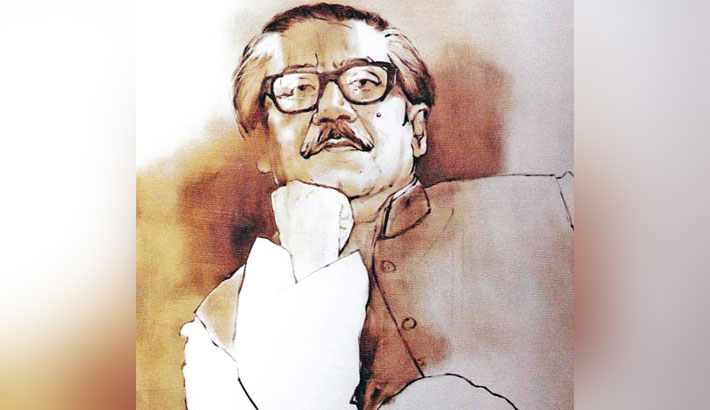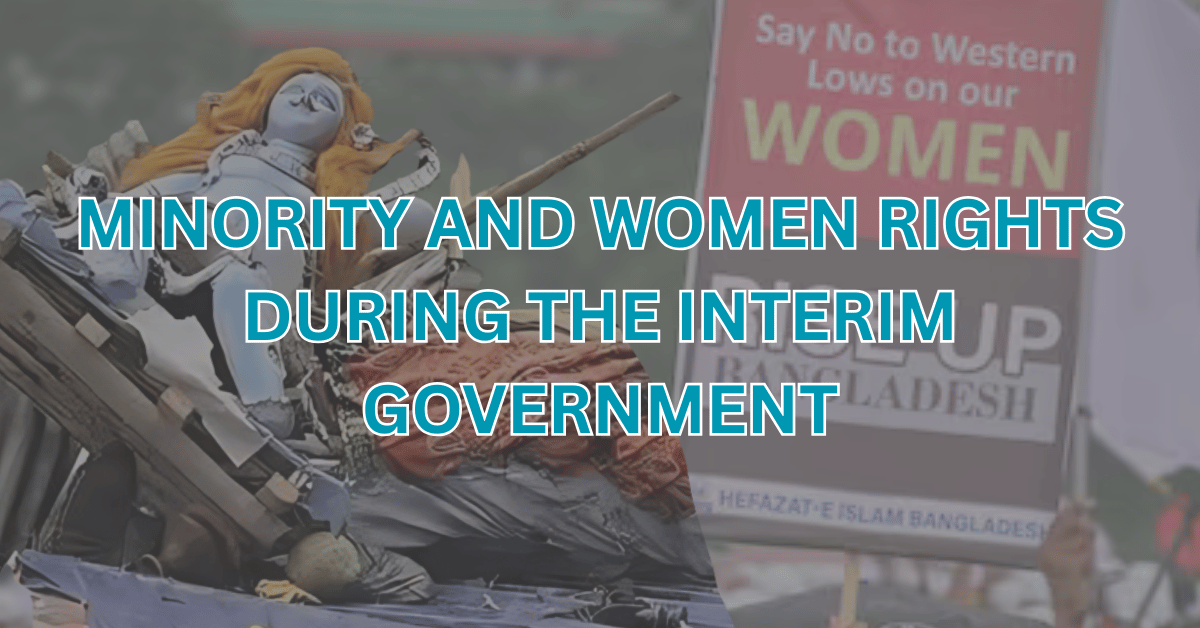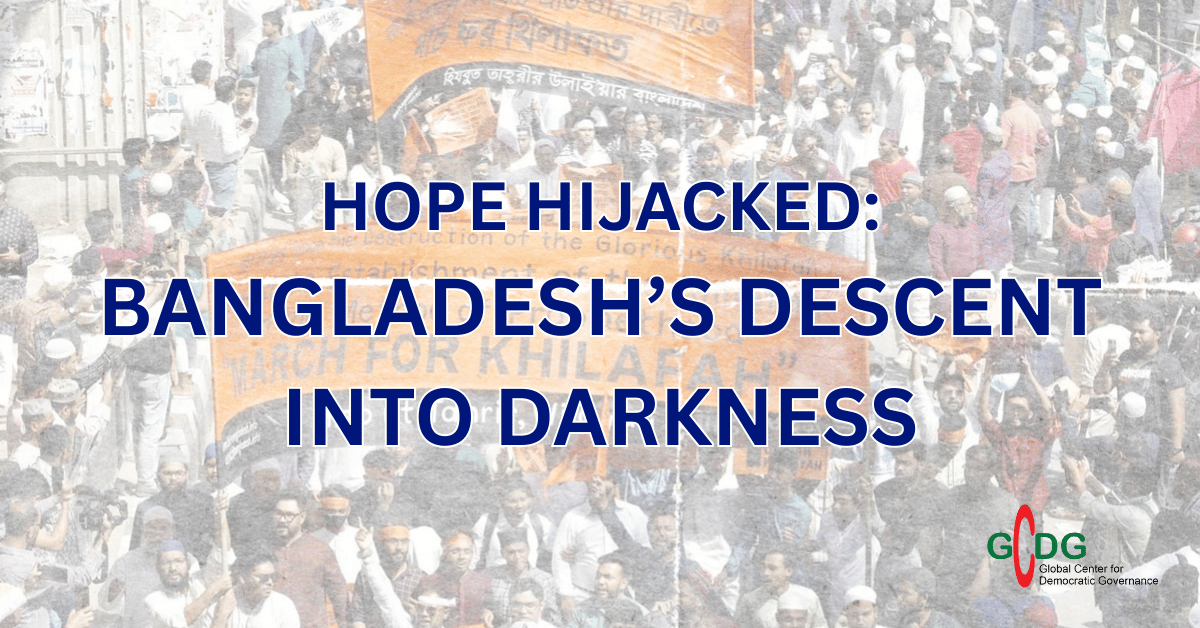The interim government’s ban on Bangladesh’s largest political party undermines democracy, empowers extremists, and threatens…

Bangabandhu: Law, Legacy and Reflections
S M Masum Billah, PhD
“They laid him in the coffin with disdain,
The killers, blind to his greatness.
Yet dignity and immortality, his two companions,
Offered him the most exquisite homage.”
—Shamsur Rahman, Tree, Coffin and Boat (1996)
Bangabandhu Sheikh Mujibur Rahman, the rakhalraja of Bengal, whose towering presence once seemed inseparable from the soil and rivers of this land, was struck down with his family in the cruel dawn of 15 August 1975. What was assassinated that morning was not only a man but an idea: the dream of a secular, just, and humane republic. Yet even in death, he has remained, as though his blood mingled with the Padma, Meghna, and Jamuna to irrigate the nation’s destiny.
To write of him is first to bow in reverence. Reverence to Mujib himself, to Bangamata Fazilatunnessa, to the young Russel who never returned to his mother’s lap, to Colonel Jamil who, by rushing unarmed to defend his leader, rescued an entire nation from cowardice. Reverence to the four national leaders who refused betrayal and paid with their lives. Reverence also to the millions of martyrs of 1971, and to the beerangona mothers and sisters whose suffering still stains our skies crimson and indigo.
Bangladesh’s birth bore a unique distinction: few nations have been simultaneously forged by the fire of war and by the cool instrumentality of law. Mujib’s Declaration of Independence (26 March 1971) and the Mujibnagar Proclamation (17 April 1971) ensured not only the legitimacy of the new state but also expanded the horizons of international law by exemplifying the right of peoples to self-determination. Within nine months of victory, another nine months gave us the 1972 Constitution—perhaps his greatest gift—framed in the cadence of Tagore’s song, ecstasy of Nazrul’s creation, carrying the brushstrokes of Zainul Abedin, the wisdom of jurists, and above all, the resolve of a people. Article 7 declared unambiguously: all powers belong to the people. Mujib could have chosen autocracy, yet he gave democracy, enshrining nationalism, socialism, democracy, and secularism as our foundational pillars.
This vision was not abstract. Mujib embraced it in his politics of abiding involvement—what might be called his humble devotion. He bowed before Bhashani, deferred to Suhrawardy, saluted the freedom fighters, cradled the maimed, wept with the bereaved, and accepted the offerings of widows and orphans as sacred duty. He believed freedom incomplete without liberation: independence was necessary, but only when joined with equality, justice, and dignity could it become mukti.
Thus, he stood uncompromisingly against exploitation, envisioning a “democratic socialism” in which democracy was not mere procedure and socialism not mechanical dogma, but both fused in the service of social justice. He insisted that secularism was not atheism, but the assurance that no faith would be manipulated for political ends. And though rooted in Bengali nationalism, his vision stretched across the world, placing him in the company of Tito, Nasser, Nyerere, Allende and Castro as a leader of the non-aligned conscience.
All this was brutally attacked in 1975. The assassins, aided by foreign intrigues and domestic betrayal, drenched the stairway of Dhanmondi 32 in blood. As Chief Justice Tafazzal Islam would later record in the Bangabandhu Murder Case (2010):
“When weeping Russel wanted to go back to the lap of his mother, wounded Sheikh Naser taking shelter in a bathroom was crying for water, Begum Fazilatunnessa Mujib seeing her husband Bangabandhu lying dead in a pool of blood in the stair cried out and asked to kill her, ‘নরপিশাচরা’ (devils) silenced all of them with shower of bullets exceeding the cruelty perpetrated by the demon force of devil Yeazid in Karbala.”
The Indemnity Ordinance that followed mocked justice by shielding the killers, embedding a culture of impunity into the Constitution itself. They were rewarded with diplomatic postings, their crime sanctified by law. Thus, the nation entered a long night in which Mujib’s ideals were silenced, and military rulers governed in the shadow of Pakistan’s Ayub and Yahya.
Sheikh Hasina, returning in 1981, carried her father’s blood as both burden and vow. Twenty-two attempts have been made on her life, but she endured, and in 1996 repealed the Indemnity Act. Through ordinary criminal courts—not martial tribunals—she placed the killers on trial, completing a legal journey unprecedented in the global South. In 2010, five of the assassins were executed, but others remain sheltered abroad: Noor Chowdhury in Canada, Rashed Chowdhury in the United States. That these countries, otherwise champions of human rights, still harbour convicted assassins of a head of state under the pretext of opposition to capital punishment, remains a stain on international justice.
And yet, the question lingers: has justice been done? Legally, perhaps. But historically, many of the masterminds and accomplices have escaped scrutiny. One may say that Mujib’s murder was avenged, but not the assassination of the Father of the Nation. For history’s debt is heavier than the court’s verdict.
Bangladesh saw remarkable growth during Sheikh Hasina’s terms (2009–2024). Bangabandhu’s vision of making a Sonar Bangla was central to her governance, focused on the socio-economic emancipation of the people. The failures were not few, but they were the failures of a fledgling democracy, scarred by terrorism, extremism, the inherited politics of hatred, coups, impunity, and conspiracy.
She was forced aside on 5 August 2024, following a controversial “July Uprising” shaped by domestic reactionaries and international actors. From behind the shadows, Professor Muhammad Yunus emerged to lead an interim administration. Among its many policies was an effort to suppress memory itself—to erase Bangabandhu’s teachings and philosophy from national life.
But on 15 August 2025, only a year later, Bangladesh witnessed an unprecedented outpouring of love and homage across every stratum of society. Perhaps it was because the interim administration sought to choke mourning, to push grief underground, that Bangabandhu’s admirers rediscovered themselves with renewed intensity. The very attempt to silence gave voice; the attempt to suppress gave strength. The day became not only one of grief but of rediscovery, reassertion, and quiet defiance—an affirmation that Mujib’s dream still lives, and that time and again, when the nation drifts, Bangladesh finds its way back to Bangabandhu.
For Mujib’s dream was not of mere independence but of liberation. He pledged with his blood that freedom would be followed by justice, and he fulfilled that promise on the stairway of his home. His unfinished autobiography is filled with the language of love—for the poor, for the toiling, for the forgotten. He wanted a nation of “golden men,” where dignity and equality would define citizenship. That remains our unfinished work.
Today, as old conspiracies once again stir, and as opportunists attempt to erase or distort, the task of the young is clear: to carry forward the ideals of the Constitution of 1972, to nurture nationalism, democracy, social justice, and secularism not as partisan slogans but as national commitments, and to guard against exploitation in every guise. For as long as Bangabandhu’s memory inspires tears of devotion, as long as millions gather in his name, his assassination can never be complete.
He himself said on 7 March 1971:
The blood you once shed to free me, I shall repay with my own blood.
And so he did. The red that flowed down the steps of Dhanmondi 32 blended with the rivers of Bengal, marking forever the covenant between a leader and his people.
The task now is to honour that covenant—not only by mourning but by realizing his dream. That is the justice still due. For in truth, Bangladesh will find its way, again and again, in the time of Bangabandhu.
The promise remains unfinished. As Syed Shamsul Haq wrote in Nuruldiner Sarajibon:
We await the dawn
When gentle dreams descend upon weary eyes…
When in joy and sorrow, bread and hope,
All shall be one, in the golden Bengal of our longing.
Joy Bangla. Joy Bangabandhu.
Bibliography (Selective)
- Constitution of the People’s Republic of Bangladesh
- Proclamation of Independence (Mujibnagar, 10 April 1971)
- Indemnity Ordinance 1975; Indemnity (Repeal) Act 1996
- Major Bazlul Huda & Ors v State (2007)
- Bangladesh v Golam Azam (1994) 46 DLR 192
- CJ Tafazzal Islam, Judgment in Bangabandhu Murder Case (2010)
- Martha Nussbaum, Political Emotions (2013)
- Sheikh Mujibur Rahman, The Unfinished Memoirs (2012)
- Shamsur Rahman, Tree, Coffin and Boat (1996)
The author is a Professor of Law, Jagannath University and a visiting Fellow, Université Côte d’Azur, France




Comments (0)